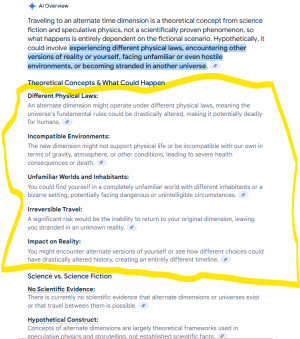@Champ_Pal
I really appreciate you not mocking and engaging in a serious discussion.
As discussed, travel across dimensions is possible. Now, when someone narrates an incident we will look at the issue using its authenticity, how its recorded, how its transmitted and other details.
By all means, tear apart all the narrations which are about Prophet Muhammad (Peace be upon Him) and then tear apart what you have in Hinduism.
Use the same set of standards with everything including your belief in
"No God and No Creator"
Absolutely not!
Saying the exact opposite, use your brain, use your faculties and use your knowledge
and above all use the same standards to judge all religions and belief systems including Atheism.
The Journey of Prophet Muhammad (Peace be upon Him) is
believed by Muslims based on the concept of ONE GOD.
Without that belief, it is scientifically "possible" which you and others are accepting.
Belief cannot be without scrutiny!
Muslims don't start their belief at miracles, they start their belief at ONE GOD!
Read and understand exactly what I am saying instead of what your mind is saying and then by all means, disagree.








